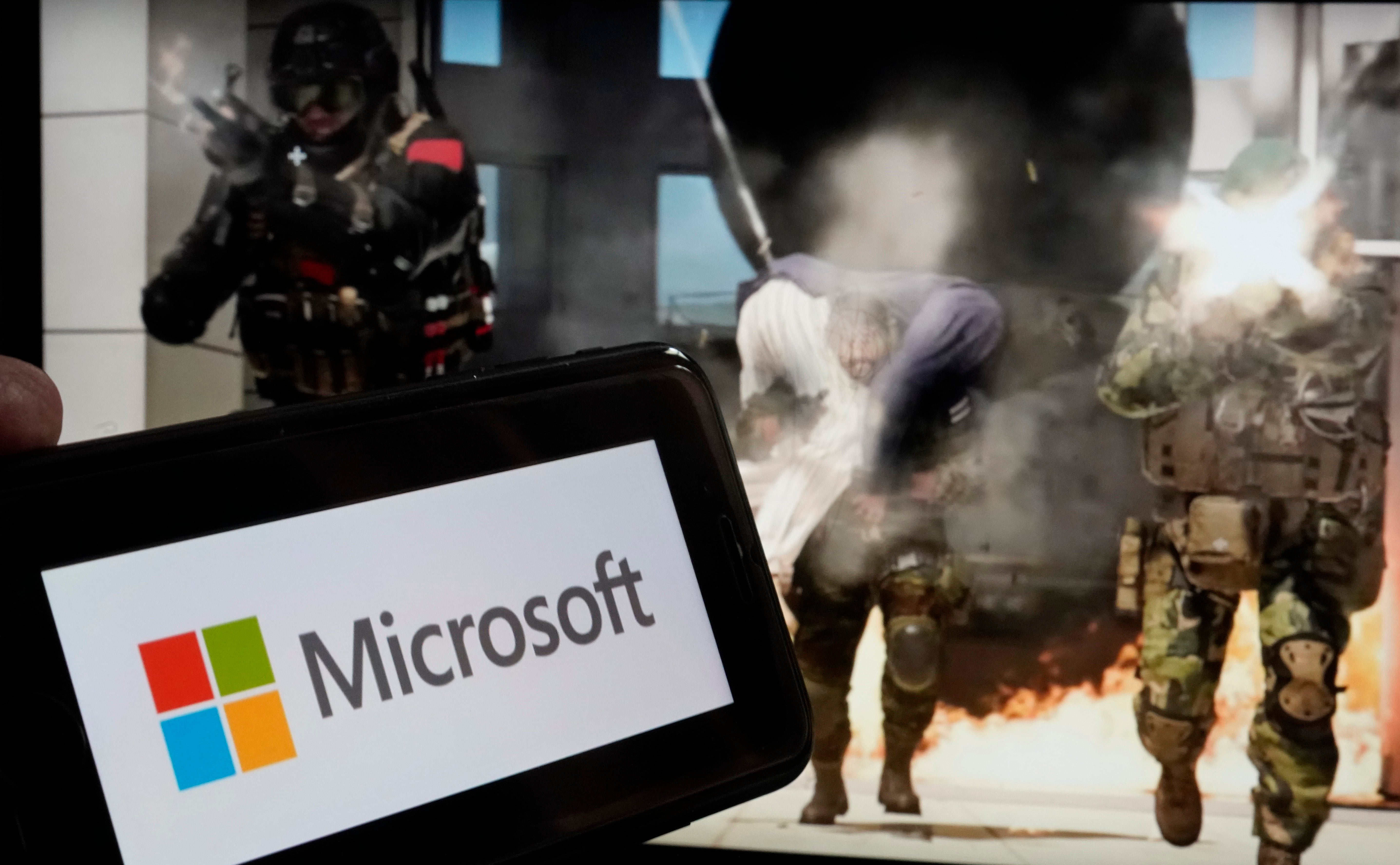Microsoft moves closer to completing $69 billion Activision takeover after court rebuffs regulators
A U.S. appeals court has rejected a bid by federal regulators to block Microsoft from closing its $68.7 billion deal to buy video game maker Activision Blizzard

A U.S. appeals court on Friday rejected a bid by federal regulators to block Microsoft from closing its $68.7 billion deal to buy video game maker Activision Blizzard, paving the way for the completion of the biggest acquisition in tech history after a legal battle over whether it will undermine competition.
In a brief ruling, a three-judge panel on the 9th U.S. Circuit Court of Appeals concluded there were no grounds for issuing an order that would have prevented Microsoft from completing its nearly 18-month-old deal to take over the maker of popular video games such as Call of Duty.
Microsoft didn't immediately respond to a request for comment. The Redmond, Washington, software maker is facing a $3 billion termination fee if deal isn't completed by Tuesday.
The appeal filed by the U.S. Federal Trade Commission was a last-ditch effort from antitrust enforcers to halt the merger after another federal judge earlier this week ruled against the agency's attempt to block it. The FTC was seeking an injunction to prevent Microsoft from moving to close the deal as early as this weekend.
The FTC declined to comment on the ruling.
U.S. District Judge Jacqueline Scott Corley's ruling, published Tuesday, said the FTC hadn't shown that the deal would cause substantial harm. She focused, in part, on Microsoft's promises and economic incentive to keep Call of Duty available on rivals to its own Xbox gaming system, such as Sony's PlayStation and Nintendo's Switch.
In its appeal, the FTC argued Corley made “fundamental errors.”
“This case is about more than a single video game and the console hardware to play it,” the FTC said. “It is about the future of the gaming industry. At stake is how future gamers will play and whether the emerging subscription and cloud markets will calcify into concentrated, walled gardens or evolve into open, competitive landscapes.”
The case has been a difficult test for the FTC's stepped-up scrutiny of the tech industry's business practices under its chairperson, Lina Khan, appointed in 2021 by President Joe Biden. Standing legal doctrine has favored mergers between companies that don't directly compete with one another.
The FTC said Corley, herself a Biden nominee, applied the wrong legal standard by effectively requiring its attorneys to prove their full case now rather than in a trial due to start in August before the FTC’s in-house judge.
It was the FTC, however, that had asked Corley for an urgent hearing on its request to block Microsoft and Activision Blizzard from rushing to close the deal. The agency's argument was that if the deal closed now, it would be harder to reverse the merger if it was later found to violate antitrust laws.
In its response to the appeal, Microsoft countered that it could easily divest Activision Blizzard later if it had to. It has long defended the deal as good for gaming.
The deal still faces an obstacle in the United Kingdom, though one it now appears closer to surmounting.
British antitrust regulators on Friday extended their deadline to issue a final order on the proposed merger, allowing them to consider Microsoft's “detailed and complex submission” pleading its case.
The Competition and Markets Authority had rejected the deal over fears it would stifle competition for popular game titles in the fast-growing cloud gaming market.
But the U.K. watchdog appears to have softened its position after Corley thwarted U.S. regulators’ efforts to block the deal.
The authority says it has pushed its original deadline back six weeks to Aug. 29 so it could go through Microsoft’s response, which details “material changes in circumstance and special reasons” why regulators shouldn’t issue an order to reject the deal.
___
AP Technology Writer Michael Liedtke contributed to this story.
Bookmark popover
Removed from bookmarks